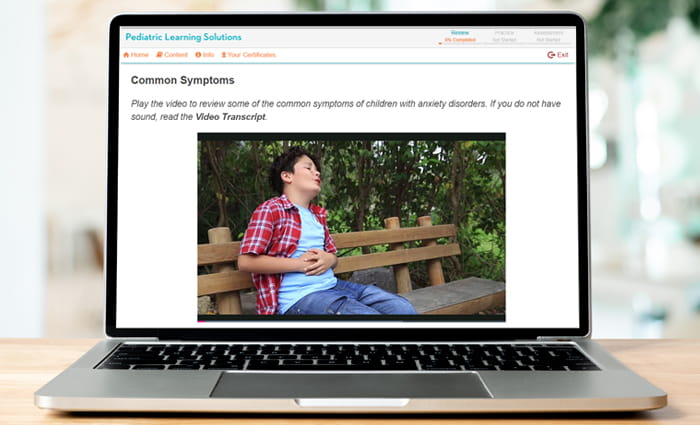Anxiety disorders and obsessive-compulsive disorder (OCD) are the most common mental and/or psychiatric disorders affecting children—about 6.5% of youth today. Only about 20% will receive treatment services.
Some of these children will present to the hospital setting with behavioral and/or somatic complaints. Left untreated, anxiety disorders can result in significant long-term problems such as substance abuse, depression, suicidal ideation, and educational and occupational underachievement. Therefore, increasing education to identify youth at risk is paramount.
Key features
- Identifies symptoms, diagnostic criterion, and types of anxiety disorders along with explaining OCD.
- Discusses causes, maintenance factors, and co-existing conditions associated with OCD and anxiety disorders.
- Video examples of symptoms of pediatric anxiety disorders.
Objectives
- Recognize the symptoms of anxiety disorders and obsessive-compulsive disorder and distinguish the spectrum from developmentally typical versus of clinical concern.
- Differentiate the types of anxiety and related disorders seen in the pediatric population.
- Explain the causes and maintenance factors of anxiety disorders and OCD.
- Discuss the common co-existing medical or psychological conditions that youth with anxiety and related disorders frequently have.
- Outline evidence-based treatments for anxiety, including psychotropic medications and behavioral interventions.
- Outline strategies that parents and caregivers (including clinicians) can use to help promote self-regulation, emotional control and resiliency in the anxious youth.
Note: This course is only available to staff at PLS Participating Hospitals through their Learning Management Systems.






